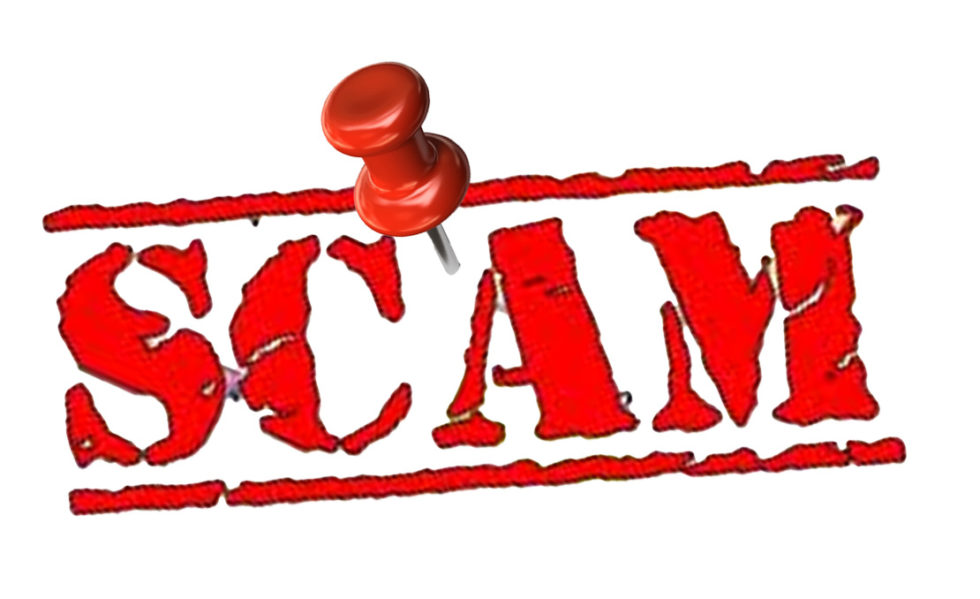If you have ever received a questionable email saying that you have just inherited a huge amount of money, or you have won a lottery you don’t remember entering, but they need you to send them personal information and/or money, these along with other emails, are part of what is known as Nigerian 419 scams. Romance scams are a branch off of the 419 scams and are very effective in hooking victims while destroying bank accounts and breaking hearts.
Romance scams typically get started when someone joins an online dating website. But they also start on social networks such as Facebook, Instagram, and Tagged. Romance scammers mostly come out of West Africa, from the countries of Nigeria and Ghana, although other countries, such as Malaysia, and Russia also have romance scammers in force. They work in teams and work around the clock at scamming victims because to them, this is a job and nothing more. They do not care about the devastation they cause their victims.
It starts simply. On dating sites, they will wink at every profile they find, hoping for a lot of responses through the dating sites’ email or chat program. Once they get the desired response, they very quickly push to switch from the dating site to Yahoo Messenger, or some other instant messenger program. Once they have their victim at Yahoo, they start in with the questions, asking as many as they can, while answering as few as they can asked of them. This is one of the methods used to build a profile of their victim and is called “social engineering”. It is also how they create their own persona to match what the victim is looking for in a romantic relationship. If family and/or friends suspect something might not be quite right with the new relationship, the scammer will simply tell the victim that they are jealous or that they don’t really want the victim to be happy, so just ignore them.
Scammers steal photos from modeling websites and from public social networking websites (a great reason to keep your privacy settings to “friends only”). They use these photos as their own and if by chance someone accuses them of stealing the photos, they will say no they are the original owner and someone stole the photos from them. They always have an answer to any accusation so that the victim will believe them. They will even take it to the point of anger and turn the accusation back on the victim by using guilt. For this they will say that “How can you accuse me of such things and tell me you love me?” Or “I thought you loved me. How could you believe this lie?” In very rare instances, the scammer may decide to admit to being a scammer, but this only leads to a worse scam, called a Green Card Scam where they try to convince the victim that they started out scamming him/her but now have fallen in love and want to marry and move to be together in the victim’s country. This will be mentioned in another post.
Once the scammer has the victim to a point where they believe the victim will respond favorably, they requests for money begin. Or the first request might be for merchandise of some kind, usually cell phones or laptops, but often for clothing. Sometimes the scammer will get the victim’s home address and send flowers or candy or a teddy bear. In this case they are prepping the victim for what is known as a reshipping scam or check cashing scam for which they need to verify the victim’s home address is real. If the victim has money the scammer will ask for money. If the victim has no money the scammer will try to entice the victim to participate in one of these other scams all the while making it sound completely legitimate.
If you have been approached or you know someone close to you who has been approached in a similar manner, please do not hesitate to get help. On this site you will find many helpful links. You also can go to our chat room website and talk in real time to other scam victims who have found healing and peace with what has happened to them and wish to share what they’ve learned with you. If it is a loved one you are seeking help for, please do not give up hope. The longer the person is involved with the scammer, the harder it can be to end it. The sooner we can get victims to help, the better the course of healing and recovery.
Who Can I Turn To Now??
Let’s face it! Getting scammed is embarrassing. Getting caught in the web of deceit known as a romance scam is even more embarrassing. Trying to talk to friends and family about what happened can be a huge headache as well as very painful. So many times they just don’t understand. It’s been said to feel like “emotional rape” and like having to mourn the death of a loved one but without a body or funeral. Maybe you lost money to the scammer. Maybe you didn’t. It’s still a fact that you were scammed. The pain that goes along with it is not easily understood by people who have not been through this kind of situation themselves.
Victims get called many things, including stupid, foolish, and worse. Some have lost their family members because no one could understand how this kind of thing could even happen. Many have isolated themselves from friends and family because they don’t know how to talk about it. So what do you do when this happens to you?
Finding a support group is a huge help. Unfortunately, there are not many support groups out there geared to recovery from this kind of situation. There are a few places online where you can report the scammer and tell your story. But once you have done that, then what? What do you do with the horrible empty feeling left behind and you have no one to talk to?
Whether you decide to report the scammer to any of the links listed on this lens is up to you. If you lost money it is probably a good thing to at least fill out an IC3 report. If you are in the USA, your financial losses can be claimed on your tax return. When you find yourself needing someone to talk to, come visit us. There isn’t someone available 24/7 but most evenings USA time, there is someone there. Even afternoons you might find people there. We have a multi-national group so you may find people at all kinds of hours, so if no one is there when you first come, keep coming back until you find someone.
Dealing With Emotions

After the Scam
When will the pain end? How do I stop this heartache? These are questions I asked myself when I was trying to recover from being scammed. When it happened to me I felt like a big hole had opened up beneath me and I had fallen in. I felt abandoned, lost, like I had lost everything that had any meaning for me. I was in short devastated!
I had built my life around this fantasy that the scammer created for me. I lived and breathed this “relationship” only to find out it was all lies! I just could not wrap my mind around what had just happened.
Slowly, as I came out of the fog, I realized that some of the feelings I had were similar to when my son passed away. At first I denied it to myself. It wasn’t true, the scammer was for real, he really was my true love. Even though I had researched online and found all the red flags and knew he was a scammer I denied it. Then I wouldn’t talk to anyone, I just wanted to be left alone in my misery and hold everything inside.
First stage of grief: Denial and Isolation.
Then I got angry! I was as angry as I had ever been in my life. I wanted to find this creep and heavens knows what I would have done! Tie him up maybe and tickle his feet with feathers til he screamed for mercy? I don’t know, but I do know the anger seemed to give me a purpose again. I actually could feel again.
Step Two: Anger
Then I started saying to myself, if you forget about this guy and try to find someone new everything will be alright! That’s what you do, you get someone new and start dating and you will be right as rain! NOT It didn’t work of course as I was still so caught up in my emotions over what had happened that every little thing about any new man I met either reminded me of my scammer and made me terrified, or he didn’t measure up to what I wanted, that fantasy the scammer had created for me.
Step Three: Bargaining
Then came the blues in wave upon wave. I cried and moaned and felt completely miserable and out of touch. I kept telling myself it was all lies and that would bring on a fresh bout of tears. There were days I didn’t even want to get out of bed, didn’t want to drag a brush through my hair, didn’t want to get dressed, didn’t want to face the world at all. I felt like everything was hopeless and there was nothing left of the world I had known.
Step Four: Depression
One morning I decided to go online and do some research and found a lot of helpful links on romance scams that led me to a romance scams group. I went into their chat room and found acceptance there. I mean literally found acceptance. All the members had been through what I had been through. They understood every nuance of this horrible crime and what it does to you mentally and emotionally. Slowly but surely I was climbing out of that hole and starting to see the world again through clearer, but wiser eyes.
Step Five: Acceptance
Now I realize that I went through the Five Stages of Grief, just as one does when you lose a loved one, in my case my son. It occurs to me that when you are scammed in a romance scam, you feel that this person is the perfect mate that you have been looking for all your life. He becomes part of your family so to speak and you feel like he is going to be a permanent part of your life. When it all falls apart it is like losing a loved one that you cherished and adored.
There is no set timetable for this grieving process. Some work their way through it in a few weeks or months. Others have a harder time and it might take them much longer. The thing is not to put pressure on yourself. Take it at your own pace. Allow yourself as much time as you need to go through all the emotions you are feeling .Don’t be afraid to cry. Tears are healing.
When you feel up to it, find a support or help group(there are a lot on the web). Talk about your feelings. They will understand as they have been through it themselves. Your family and friends can be supportive and helpful too. However sometimes you need to talk to others that have been through it themselves. In some cases you may need to seek professional help. Do not be afraid of that either. If you need help get it.
You will see that slowly you will accept what has happened to you and you will be able to make your peace with it. You will realize that you are still that same loving, giving, caring person, but that you are wiser and more aware. You will understand that you are still capable of making good judgments and wise decisions.
Allow yourself to go through the stages of grief. It is a helpful process that enables you to get through the experience and being able to recognize the stages enables you to climb out of that hole and move forward with your life. And we all want that don’t we?
How to Check the IP Address on Received Emails

Finding the Email Header and IP Address
One of the easiest ways to protect yourself online from a romance scammer or even a 419 scammer is to learn how to find the full header in each email you receive and then learn how to take that header and find the IP address indicating where the email originated.
Each email program will have similar methods for finding the full header. For the purposes of this instruction I will use Yahoo email. Yahoo appears to be the most used by scammers, however they do use Hotmail, GMail and others. What you generally will not find is a scammer using a local ISP email which is the email address you receive when you sign up for internet service at your home. The main reason for this is that the scammers are not using home computers, but are sitting in internet cafes using public computers to send the emails they use to scam us. Therefore, they will be using web-based email services, and Yahoo is the most popular choice.
To find the full header in an email, first open your email inbox. (Other web-based email providers methods vary but may be similar to this.) Click an individual email to open. Once you have it open, you will see a toolbar across the top of the actual email. This toolbar includes Delete, Reply, Forward, Spam, Folders, Print, and a Cogwheel for Settings followed by an up arrow and down arrow. Click on the cogwheel and a menu box will pop up. In that menu box is a selection “View Full Header”. Click on that option.
Once you have clicked on “View Full Header” you will see a pop-up box with a lot of computer gibberish inside. You will want to highlight the entire contents of this pop-up box and right click your mouse button to copy the highlighted field.
In a separate tab or window you will need to have open one of the following websites. iptrackeronline or Scam Email P
Paste the highlighted computer gibberish taken from your full header pop-up box into the blank box on one or both of those IP tracker websites and click the submit/analyze button. The results will give you information on the originating country and originating city that the email you received was sent from.
The results most likely are going to show Lagos, Nigeria, or Accra, Ghana.However, any location other than the location the sender claims to be from is a big red flag that this person is not telling you the truth about who he/she is or where he/she is located.
There are some cases where the IP address is going to show up in the general area the person claims to be located. If this happens, you will need to continue your research to make sure. The scammers have ways of masking their IP address so as to fool their intended victims. Finding out someone claiming to be in your state is actually in Nigeria or Ghana, however, will tell you right away that this is a scammer attempting to trick you into giving your money to him.
There are times that by the time you have learned how to check the IP address, the person you are talking to has already claimed to have been sent to Nigeria or Ghana for some job or business reason. At that point their emails will show Nigeria or Ghana and will not be so questionable. What IS questionable is that anyone you might be talking to would ever be sent to Nigeria or Ghana in the first place.
If the IP address you have found points to either Nigeria or Ghana (or even Malaysia or some other country where the person is not supposed to be located) you can pretty much know that this is a scammer. By the way, if you are using Yahoo email and one of the results comes up Sunnyvale, California, know that this is Yahoo’s base of operation and that will show up on the analysis results, but not as the originating city.
GMail is the one email that tracking an IP address is difficult. This is because apparently Google has chosen to mask all email IP addresses of its users. However, not being able to track the IP address is not a big problem. Finding the IP address is just ONE of the major warning signs pointing to a person being a scammer. The thing is, when you do this IP tracking and you do find out the person is in Nigeria or Ghana, you can know it is a scammer without much further research at all. The stories they tell us of why they are in Nigeria or Ghana in the first place just do not fit real life.
There is also an email program you can easily add to your computer that will give you the origins of all emails you receive. There is a free trial period and then a small subscription fee if you like the program. It is called Read/Notify and can be found here. With this program you can get extra information about emails you send as well as receive. For instance you can check the time and location of the person you send emails to as to when and where they have opened your email.
Whatever the results you get when you do your IP tracking, NEVER SEND MONEY to anyone you only know online and have not actually met face to face. Also, be very careful about giving out personal information such as phone numbers, addresses, last name, children’s names, etc. Don’t share photos unless you are absolutely sure you know who this person is because the photos you share may be the next ones they use to scam their next victim.
How Safe Are Your Photos Online?

Everyone is doing it! Posting your own photo or those of your children, grandchildren, spouse, pets, house, etc. has become a very popular pastime on social networking sites such as Facebook, Instagram, and Tagged. But how safe is it really?
Romance scammers are stealing photos online every day! How do you protect your photos from being stolen and used to scam someone out of their money and heart? The safest way of all is to never post photos online in the first place. But if you are going to post anyway, make sure the location where you put your photos has privacy settings that you have control over. Then make sure that you set your privacy settings to either “Only me” or “Friends Only”, or whatever wording is used to mean that you control who gets to see those photos.
Romance scammers use the military to make themselves appear real. If you have created a website or profile somewhere to honor your loved one who gave their life in the military, add privacy controls so that the photos and other information cannot be stolen. It’s bad enough that the scammers are getting military photos online from public profiles of soldiers who are alive and well. To know that they are also using photos of those who have given their lives to defend us makes the military scams even more horrendous.
One of the most difficult things to deal with after a romance scam is knowing that the scammers have my photos. Any photo I sent the scammer of myself or anyone in my life is now in their possession to use as they choose to and I have no control over it. If you are talking to someone online that you only know online, please don’t freely give them your photos or those of your children or grandchildren, or even your parents. Wait until you know for sure that the person you are talking to is not a scammer. Follow the instructions given elsewhere on this lens to find out if you are dealing with a scammer or not before you share photos. Even then, it is better to meet the person face to face first.
How are the photos used? Photos stolen off the internet or photos shared by other victims of romance scams can be used on dating site profiles, social networking site profiles, and in emails to help convince victims that the person they are in contact with is real. When you see a photo of a nice looking man or woman playing with the family pet, or standing outside a beautiful home, or even driving an expensive car, you tend to believe that the person really is who they claim to be. The more information and the more photos that can be stolen from you, the more ammunition you hand over to the criminals to use against their next victim.
The last thing any of us wants is to find out our photos have been used to hurt someone else. Make sure you have checked all your privacy settings every time you want to share photos anywhere online. Those settings are out there for your protection. Use them wisely.






